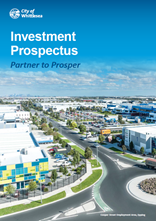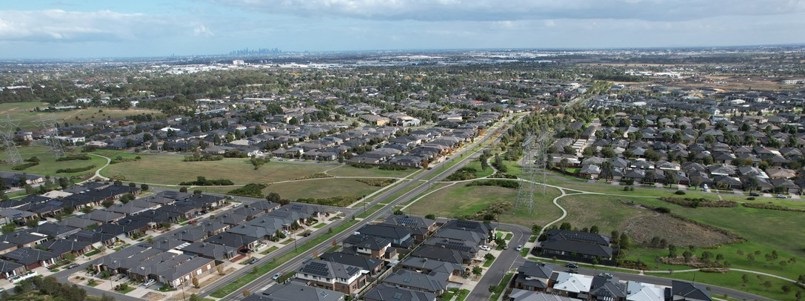City of Whittlesea is a smart location for new and expanding businesses. Located just 20 km north of Melbourne's CBD, the thriving local government area offers the perfect combination of:
- rapid population growth
- skilled local workforce
- quality amenities
- a comprehensive network of transport links.
We're committed to building a robust and economically valuable investment environment where our local businesses, partnering organisations and residents will thrive.
Watch this video to see why investing in Whittlesea makes good business sense.
Our investment prospectus gives you key industry and location specific data and facts to help you choose the ideal location for your business.
You can also contact the Investment Attraction and Business Growth team within our Economic Development department for a confidential discussion. Email invest@whittlesea.vic.gov.au or call 03 9217 2170.
Download our investment prospectus
Investment Prospectus: partner to prosper - accessible(DOCX, 25MB)
Investment Prospectus: partner to prosper(PDF, 16MB)

The City of Whittlesea is well located for local, national and international trade, with direct access to major travel and transport routes.
Our region offers easy access to:
- Melbourne CBD – 25 mins
- Melbourne International Airport – 20 mins
- Essendon Airport – 25 mins
- Port of Melbourne – 35 mins
- the national road network, including direct access to the eastern seaboard via Hume Freeway (M31), Metropolitan Ring Road (M80), and west via Calder Freeway (M79)
- Metro Trains to Melbourne's CBD running from eight stations every 20 mins on weekdays
- the national rail network
- planned Beveridge Intermodal Freight Terminal.

Anchored by a rapid population growth and a thriving business community, the City of Whittlesea offers a pipeline of opportunity to leverage now and into the future.
The local population is projected to experience rapid growth between now and 2040, putting it within Australia's top 10 fastest growing local government areas (based on 10 years average growth).
Fast facts
- Resident population: 238,004
- Predicted population by 2040: 355,144
- Businesses: 21,617
- Local jobs: 77,893
- Gross Regional Product (GRP): $10.39 billion
- GRP change since previous year: +4.95%
Data based on 2022 figures.
View more info about our local population and economy

The City of Whittlesea is home to a highly skilled and diverse workforce. It has world class education providers with more than 48,309 people holding a tertiary qualification.
Fast facts
Skilled workforce qualification
- 17.5% of residents have Certificate III and IV
- 23.5% have a Bachelor or higher.
Higher education in the City of Whittlesea
- RMIT University (Bundoora)
- Melbourne Polytechnic (Epping)
- Northern Centre for Health Education Research (Epping)
- close proximity to La Trobe University (Bundoora).
Top three occupations
- Professionals
- Technicians and trades
- Clerical and administrative workers.
Our skilled workforce continues to diversify, supporting the establishment of new business and existing business growth in areas including:
- the professional sector, particularly school teachers, midwifery and nursing professionals and medical practitioners
- community and personal service workers, technicians and trades, labourers and managers.
Data is based on 2022 figures.
View the key characteristics of our local workforce
The City of Whittlesea is home to a number of established, leading and emerging sectors anchored by industry clusters and state government prioritisation. This offers you the opportunity to leverage the established infrastructure and supply chains to grow your business.
Key industries and value added per sector 2021/22 ($ million)

Key industries and value added per sector: Accessible version
- Construction: $1191 million
- Health care and social assistance: $1092 million
- Manufacturing: $1022 million
- Wholesale trade: $829 million
- Retail trade: $654 million
- Transport, postal and warehousing: $611 million
- Education and training: $575 million
- Public administration and safety: $330 million
View local population and economy data
Discover local industry investment opportunities
Get the latest business news sent straight to your inbox including announcements, initiatives, training, funding, events and networking opportunities.
Sign up to our business e-news